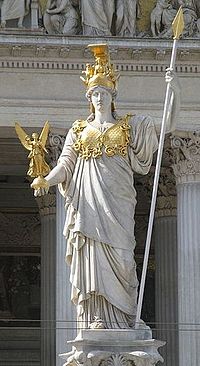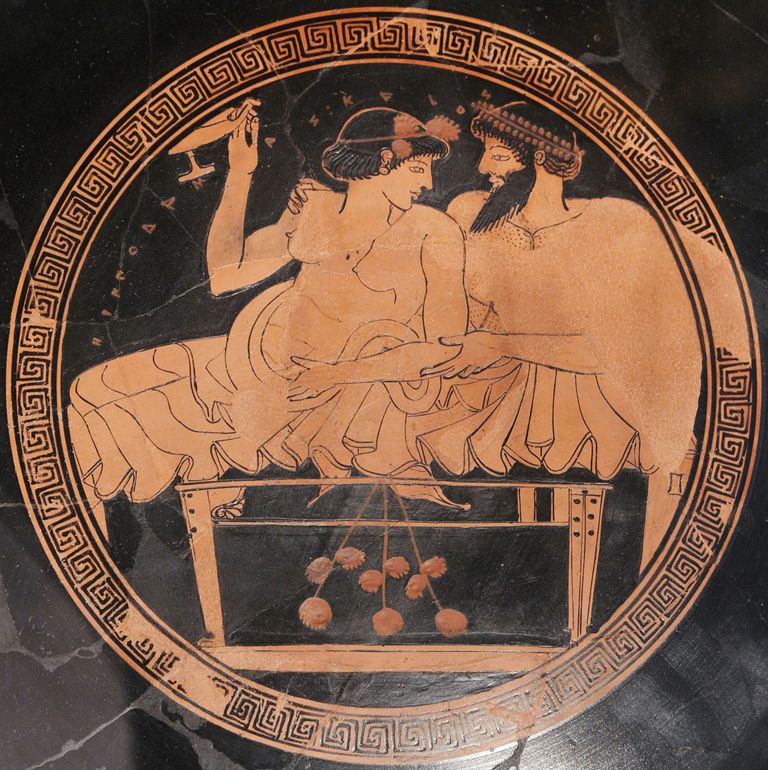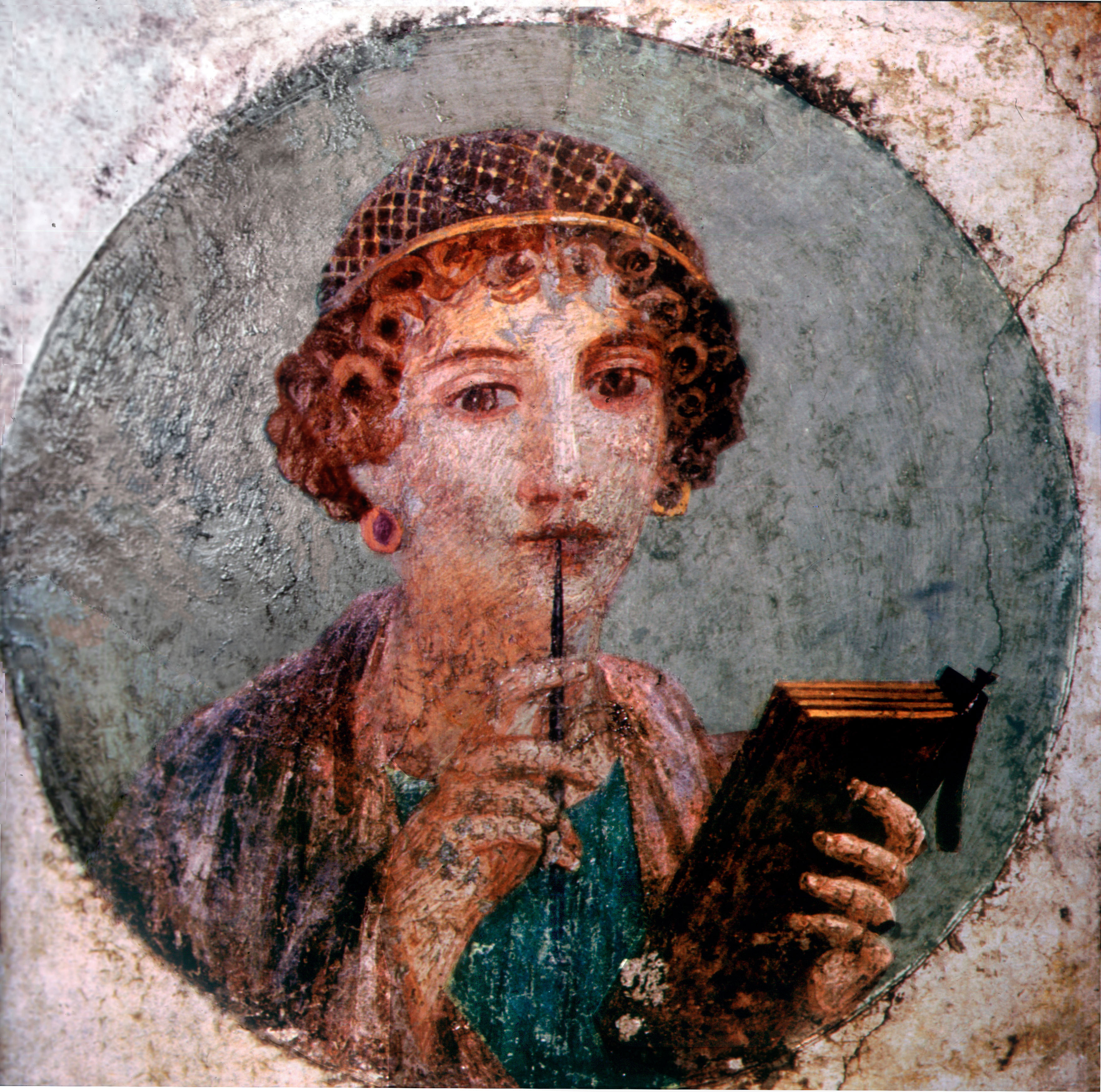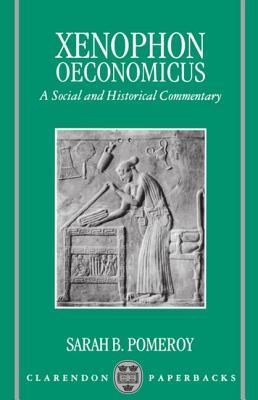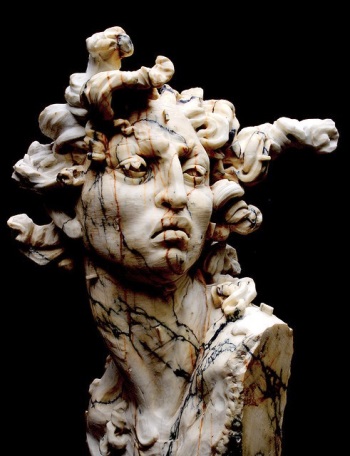The Struggle for Respect
Women have always been discriminated against solely because of their gender, creating a world where man is the superior sex. The concept of gender equality is a fairly modern belief that has recently begun to shape governments, social structures, and economies. Although many countries do not believe in equality for both sexes, women have slowly progressed towards a more just world. About one-hundred years ago, women in the United States did not have the right to vote, serve on a jury, study to be a lawyer, or even earn equal pay.
“Women will only have true equality when men share with them the responsibility of bringing up the next generation.”
Ruth Bader Ginsburg
Living under prejudiced laws, new generations are continuing the practice of sexism. Once the tasks of raising families and leading governments are shared by both sexes, gender equality will finally be reached. The discrimination of women is mainly due to the prominent roles men play in religion. Since religion is the belief system of civilizations, and men serve as the focal point, it seems fit that most societies are utterly misogynistic. In almost all ancient civilizations, men purposefully built the world around them by making prominent religious figures male.
As perceived by most civilizations, women were weak and incapable of thinking for themselves. This idea influenced the government and daily life in ancient Greece. Greek women spent the majority of their lives in the house, occupying the typical role of housewife, while Greek men controlled women’s actions by creating firm laws, restricting their involvement outside the home. The long-established role ancient Greek women played in society was clearly created because of Greek mythology. Greek men constructed sexist myths whose morals were then translated into society. In mythology, goddesses were belittled and sexually harassed by gods, appearing fragile and powerless. The image held by goddesses was directly imitated by ancient Greek women. Although there were many powerful, strong women in Greek mythology, goddesses and ancient Greek women were still objectified and sexually assaulted because Greek men dominated all aspects of society; women were confined to the home, and gender equality was not present.
Men’s Effect on Greek Society
Similar to most ancient civilizations, Greek men completely controlled society. They ran the government, wrote all of the written records, kept women inside their homes, managed public events, and strongly influenced Greek mythology. Furthermore, women were legally deemed the property of men.
“A man who teaches a woman to write should recognize that he is providing poison to an asp [a deadly snake].”
Athenian Maxim (4th Century)
Most Greek men kept women inside the home because they felt threatened by them gaining power through knowledge. This belief about educating women continues to linger in some civilizations even today.
For ancient Greeks, mythology served as an explanation of the world and elucidated why mankind lived. Even though there were many important goddesses, they were constantly objectified and raped by male gods. Since Greek mythology was primarily written by men, goddesses were created to be role models for ancient Greek women. Whether a goddess was a positive or negative influence depended on her sexuality. For example, Athena was viewed as the perfect goddess because she was a virgin, which made her reliable and helpful. Her virginity encouraged other women to stay virgins too, benefitting men. Athena was born from Zeus’s head, making her even more superior because she was not born from sex.
“It is in its tremendous potency as a symbol that the miraculous birth of Athena is significant. It sets the tone for the system of rule which it has helped bring into being. This will be a system in which the male is utterly dominant, since even the female’s role in reproduction can be dispensed with if Zeus puts his mind to it.”
Sue Blundell

Similar to how Athena was a positive role model, Aphrodite was a negative one. Aphrodite’s sexual activity made her seem dangerous to Greek men, so they kept women away from her, fearing their wives and daughters would act similarly. Ancient Greek men purposefully created goddesses like Athena and Aphrodite to distinguish between “acceptable” and “unacceptable” women.
The weak depiction of goddesses in Greek mythology was also held by women because both myths and laws were primarily created by men, allowing for a sexist world that denigrated females. Since most written records were also created by men, evidence regarding Greek women was written in the wrong perspective. Greek men could have covered up the true feelings women felt of their nonexistent rights.
“The near complete absence of Greek women in ancient history (as opposed to Greek mythology and drama) is a function of the fact that ancient historians were predominantly Athenian males from the classical or Hellenistic periods.”
Helena P. Schrader (Historian and Novelist)
Perhaps if ancient historians were also female, there would be a very different story about the lives of ancient Greek women.
A typical week for an ancient Greek man included attending private dinners, religious festivities, and public parties. Respectable Athenian women were excluded from the public events and would wait in the gynaeceum, the women’s quarters. The only women who attended these parties were female prostitutes, encouraged by Greek men to come. Although Greek women were completely devoted to their husbands, their husbands could engage in sexual activity with another woman, such as a prostitute, with no punishment. However, if a man found out that his wife was having sex with another man, he was allowed to murder her without being charged with a crime. Greek society was utterly misogynistic and only took into account the rights and interests of men.
Ancient Greek men had complete authority over the roles women played in daily life and mythology. They shaped the way women behaved, set role models for them, and diminished their rights. However, the most demoralizing accomplishment was how Greek men devalued women’s voices. Without being able to stand up for themselves, women felt inferior to men and constantly gave in to them, beginning to think poorly of themselves and despising their own sex. But, what if women did stand up for themselves? What if men and women viewed each other as equals? What would have happened? These endless questions build up, making historians question what life could have been.
Women Lacked Basic Rights
According to ancient Greek men, women were incapable of thinking for themselves. This idea was generated because almost all women did not attend school. Other than a proper education, women lacked the right to vote, attend public events, own or inherit property, or participate in politics. These were basic rights all people should be entitled to, no matter their gender. Even today, women across the globe are still struggling to obtain these fundamental principles. Women from ancient Greece and other civilizations never received these rights because men controlled their lives.
Greek mythology reinforced the misogyny, helping to shape a male dominated society. Most goddesses were treated with no respect, and those who tried to gain power either became crazy murderers, like Clytemnestra, ended up dying, like Antigone, or faced dire consequences. There were also many malevolent creatures, created by Greek men to depict women. For example, the Harpies were monsters with a bird’s body and a woman’s face that stole food from humans. Another female-like monster was the Sphinx, a creature with a lion’s body and a woman’s head, who terrorized the city of Thebes. Since most goddesses were considered evil, women were also discriminated against in similar ways.

Harpies – Monsters with a bird’s body and a woman’s face 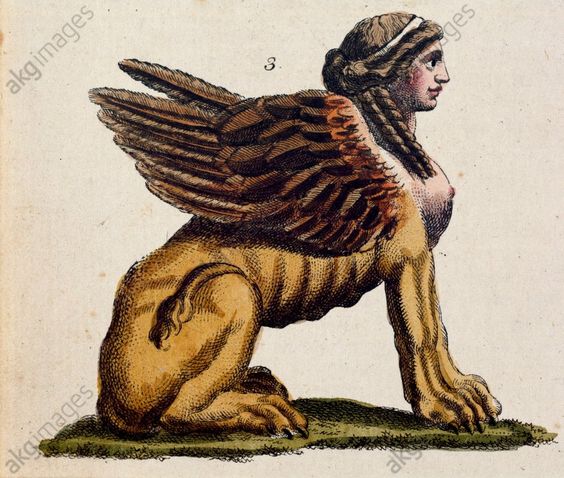
Sphinx – Creatures with a lion’s body and a woman’s head
“O Zeus, why did you house them in the light of day, women, man’s evil, a false glittering counterfeit? … This makes it clear how great an evil woman is… I hate a clever woman, and … I would destroy you all. Never shall I have enough of hating women.”
Euripides’ Hippolytus
One of the most valuable rights women lacked was a formal education, making them seem unintelligent. In some rare cities, young girls learned the basics of reading and writing, but “the goal of a girl’s education was to prepare her for her role in rearing a family and not to stimulate intellectual development.” Girls that attended school were taught with a different objective than boys. One young woman, Sappho of Lesbos, was educated and defied the traditional beliefs about women. Little is known about Sappho of Lesbos, other than her fame as a writer. She wrote lyrical poems about lesbian love and introduced a modern idea to ancient times. Her poems were so famous that even Plato and Solon honored her work. Here is an excerpt from a poem:
That man to me seems equal to the gods,
Sappho of Lesbos
the man who sits opposite you
and close by listens
to your sweet voice
and your enticing laughter-
that indeed has stirred up the heart in my breast.
for whenever I look at you even briefly
I can no longer say a single thing.
Sappho’s work is evidence that women can think for themselves and are capable of producing masterpieces, opposing the beliefs of most ancient Greek men. If more women were educated, think about what they could have contributed to arts, maths, and sciences, and how differently men would have treated them.
Since education was typically not part of a woman’s life, her main purpose was to birth children to keep the family name alive. Once a woman had enough children, she was stuck in the house for nearly the rest of her life. Although this job may sound boring, women were filled to the brim with tasks around the home. They were in charge of watching children and slaves, handling the financial accounts, paying the bills, making clothes, and other laborious chores. Xenophon, an Athenian soldier, wrote a Greek play Oeconomicus that described the typical role of an ancient Greek woman. In the play Ischomachus explains to his wife:
“Since both domains – indoor and outdoor – require work and attention, then God, as I see it, directly made woman’s nature suitable for the indoor jobs and tasks, and man’s nature suitable for the outdoor ones. For he made the masculine body and mind more capable of enduring cold and heat and travel and military expeditions, which implies that he ordained the outdoor work for man; and God seems to me to have assigned the indoor work to woman, since he made the female body less capable in these respects.”
Ischomachus’ Oeconomicus
According to Ischomachus, a woman’s position was inside the home and was determined by god. This perspective was frequently seen by men from Greece and other civilizations.
Without obtaining a formal education or having certain rights, ancient Greek women suffered extreme inequalities. The rights to these entitlements are problems women still face today in countries like Pakistan, the Vatican City, Saudi Arabia, and Afghanistan, who were less adamant towards women obtaining these rights because of their core religious beliefs. These countries give credit to God, or Allah, for making women “less capable” than men. Similarly, ancient Greece pivoted its civilization around mythology. Greeks credited God for creating a sexist world, as exemplified in the passage from the writer Xenophon. The concept of religion serving as an excuse for immoral behavior continues to be a recurring theme in modern times.
Gender Equality
The Ancient Greeks and other civilizations had an unspoken law that men were better than women. Some women might have acknowledged that this idea was unfair, but they knew better than to speak their minds. Greek women accepted the opinions of men and even convinced themselves God created the world this way. There was no initiative to change the tacit law, and centuries passed before women finally spoke up. Eventually, women built confidence in each other, which lead them to press for equal education, equal laws, equal pay, and equal lives. The concept of gender equality was unheard of in the ancient Greek era, but over time they transitioned away from sexist practices.
Inequality of the sexes was displayed in both mythology and society, as women were constantly minimized. Gods and men obtained power over women by raping and sexually assaulting them. The story of Medusa, a Gorgon monster, relates to this uncivilized behavior. Medusa was a beautiful virgin and the only mortal goddess, until Poseidon raped her in the temple of Athena. Enraged, Athena turned Medusa’s hair into snakes, gave her wings, claws, and menacing teeth, and from then on, whenever she looked at a person they would turn into stone. The punishment was unfair because Medusa could not protect herself from Poseidon, but since Poseidon was a male god, the punishment fell on her. The Gorgon Medusa’s fame comes from the tale of how Perseus cut off her head, but many people do not realize the hideous monster was once a young woman who had been raped by a repulsive male. This is the untold story that was hidden from society. Stories like Medusa’s are found throughout Greek mythology, but they are not the ones that draw attention; instead, Medusa became famous as a symbol of women’s anger to be feared by most men.
Parallel to Greek mythology, gender equality was nonexistent in Greek society. Laws stated that women were the legal property of their husbands, making this idea concrete, rather than just an opinion. In addition, Athenian women were not legally designated as politai, or “citizens with political rights”. Politai had rights to attend meetings of the Assembly, hold public office, sue in court, participate in a jury, and fight in the military. Greek women were deemed astai, or “members of the community”, denying them political rights. During the late Archaic times, Athenian men regulated women’s behavior by creating harsh laws. For example, one law placed limitations on a woman’s role in funeral gatherings:
“The women who come to mourn at the funeral are not to leave the tomb before the men. … In the event that a person dies, when he is carried out, no women should go to the house other than those polluted [rendered ritually unclean by the death].”
Unnecessary laws were created so that women had no political rights and were treated in immoral ways.
Being denied rights and legally designated as the property of men, Greek women felt invisible. Their invisibility affected their assertiveness and self-confidence. Some Greek women were enraged at how men treated them, but they never voiced their opinions. An excerpt from Sophocles’ play Terces exemplifies some emotions disparaged women were feeling:
“Often I ponder the status of women: we are nothing. As small girls in our father’s house, we live the most delightful life, because ignorance keeps children happy. But when we come to the age of maturity and awareness, we are thrust out and bartered away, far from the gods of our forefathers and parents, some to alien men, some to barbarians, come to good homes and some to abusive ones. And after one single joyful night of love, we are compelled to praise this arrangement and consider ourselves lucky.”
Sophocles’ Play Terces
Some women were dissonant with Greek society, not satisfied with their husbands or families and resenting their never ending jobs. This perspective contradicts how ancient Greek men have perceived women to have been, stating women were completely submissive and in agreement with their role in the house. However, sources convey they were unhappy with the little respect they were given. The contrast in perspectives questions the accuracy in the evidence that both men and women present.
The issues that took place during ancient Greek society, like women being raped, can be found within many existing civilizations. In the United States, women have initiated the Me Too Movement to take a stand against men that have raped and sexually assaulted women. The movement encourages women to speak out and share their personal stories. The issue of men raping women has always been a part of civilizations, and the world is finally acknowledging that this behavior is unacceptable and should not be practiced by either gender. There will be many more years before everyone agrees, but at least progress is being made.
Conclusion
Ancient Greece was one of the most customary examples of a civilization where gender equality was nonexistent. Women played conventional roles and were considered the property of their husbands, Greek men controlled the government and all aspects of daily life, and gods repeatedly sexually abused goddesses and women. Without having a voice, women were taken advantage of and forced to work inside of the home, unable to question the sexist laws which Greek mythology reinforced. Since mythology greatly influenced Greek society, women and goddesses were treated in the same way – as objects, not humans. Overall, ancient Greek women and goddesses were not given the respect that they deserved.
Even though women have been considered unequal to men in the past and present, there is still hope for a better future. The amount of female activists has steadily risen with every generation, strengthening the fight for gender equality. Women across the globe are heading to the streets and marching for what they believe in; fighting against the inequalities. With the amount of change taking place today, who knows what kinds of rights women will have tomorrow, the next year, or the next century? From the ancient Greeks to the modern Americans, women are inching their way towards an equal, nondiscriminatory, and quintessential world. Ancient Greek women would be proud.
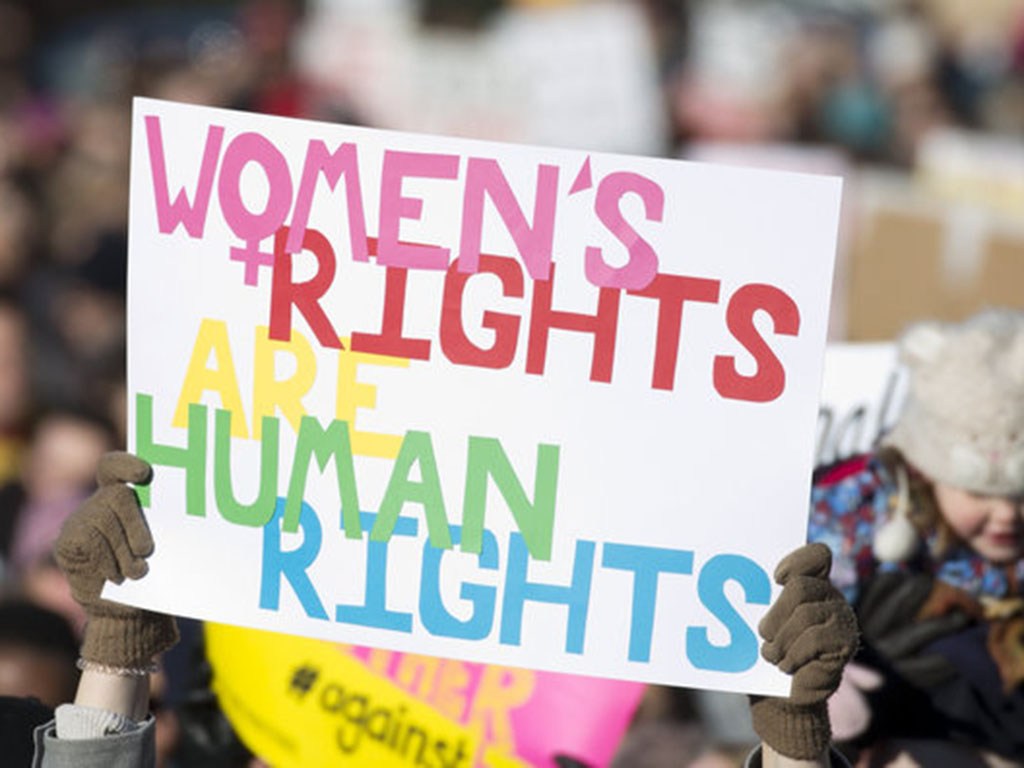
Works Cited
Nardo, Don. Women of Ancient Greece. Lucent Books, 1947. Accessed 2 May 2019.
Kirby, John. “Classical Greek Civilization.” World Eras, edited by Matthew J. Bruccoli, Richard Layman, and Anthony J. Scotti Jr., Gale Group, 2001, pp. Accessed 23 Apr. 2019.
Eyewitness Books. Ancient Greece. DK Publishing, 2007. Accessed 23 Apr. 2019.
History. “Greek Mythology.” History, 21 Aug. 2018. Accessed 23 Apr. 2019. https://www.history.com/topics/ancient-history/greek-mythology.
Cartwright, Mark. “Women in Ancient Greece.” Ancient History Encyclopedia, 27 July 2016, https://www.ancient.eu/article/927/women-in-ancient-greece/ Accessed 8 Apr. 2019.
Sappho. Poems of Sappho. Translated by Julia Dubnoff, University of Houston. Accessed 23 Apr. 2019.
Greek artist. Ivory Decorative Plaque. 7th Century BC, Metropolitan Museum of Art, New York. Accessed 23 Apr. 2019.
Greek artist. Lead Plaque with Two Women. 6th Century BC, Metropolitan Museum of Art, New York. Accessed 23 Apr. 2019.
Pakistan artist. Dish with the Drunken Hercules Supported by Two Women and Flanked by a Lion. 1st Century, Metropolitan Museum of Art, New York. Accessed 23 Apr. 2019.
Cartwright, Mark. “Greek Mythology.” Ancient History Encyclopedia, 29 July 2012, https://www.ancient.eu/Greek_Mythology/. Accessed 23 Apr. 2019.
Pollard, John. “Greek Mythology.” Encyclopaedia Britannica, 13 Feb. 2019, https://www.britannica.com/topic/Greek-mythology. Accessed 23 Apr. 2019.
Mark, Joshua. “Sappho of Lesbos.” Ancient History Encyclopedia, 2 Aug, 2014, https://www.ancient.eu/Sappho_of_Lesbos/. Accessed 23 Apr. 2019.
Mark, Joshua. “Gorgo of Sparta.” Ancient History Encyclopedia, 7 Aug. 2014, https://www.ancient.eu/Gorgo_of_Sparta/. Accessed 23 Apr. 2019.
Cartwright, Mark. “Athena.” Ancient History Encyclopedia, 24 May 2012, https://www.ancient.eu/athena/. Accessed 23 Apr. 2019.
Jason. “Medusa: Golden Child.” Myths and Legends, Bardic Enterprises, https://www.mythpodcast.com/12752/80a-medusa-golden-child/. Accessed 2 May 2019.
Garcia, Brittany. “Medusa.” Ancient History Encyclopedia, 20 Aug, 2013, https://www.ancient.eu/Medusa/. Accessed 2 May 2019.
Malloy, Mark. “1918 vs 2018: 13 Things Women Couldn’t Do 100 Years Ago .” The Telegraph, 6 Feb. 2018, https://www.telegraph.co.uk/women/life/1918-vs-2018-13-things-women-couldnt-do-100-years-ago/. Accessed 6 May 2019.
McCarthy, Erin. “15 Memorable Ruth Bader Ginsburg Quotes.” Mental Floss, 15 Mar. 2019, http://mentalfloss.com/article/62023/15-awesome-ruth-bader-ginsburg-quotes-her-84th-birthday. Accessed 6 May 2019.

